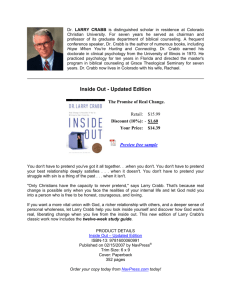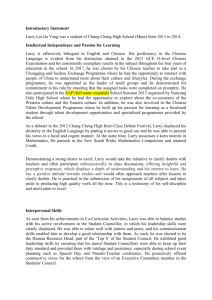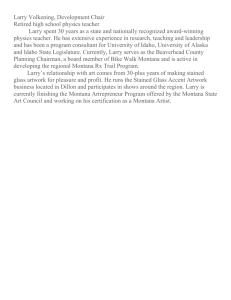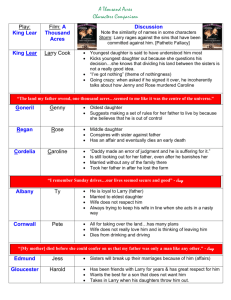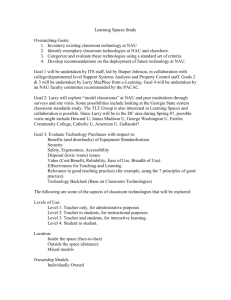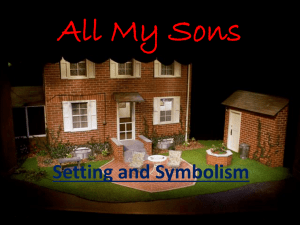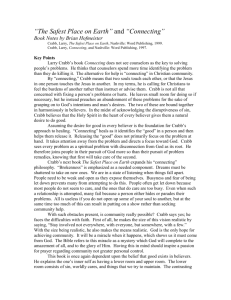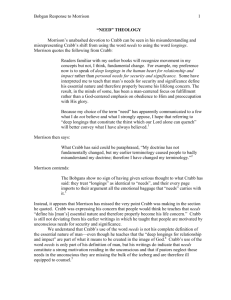Larry Crabb with Ashley Roberts
advertisement
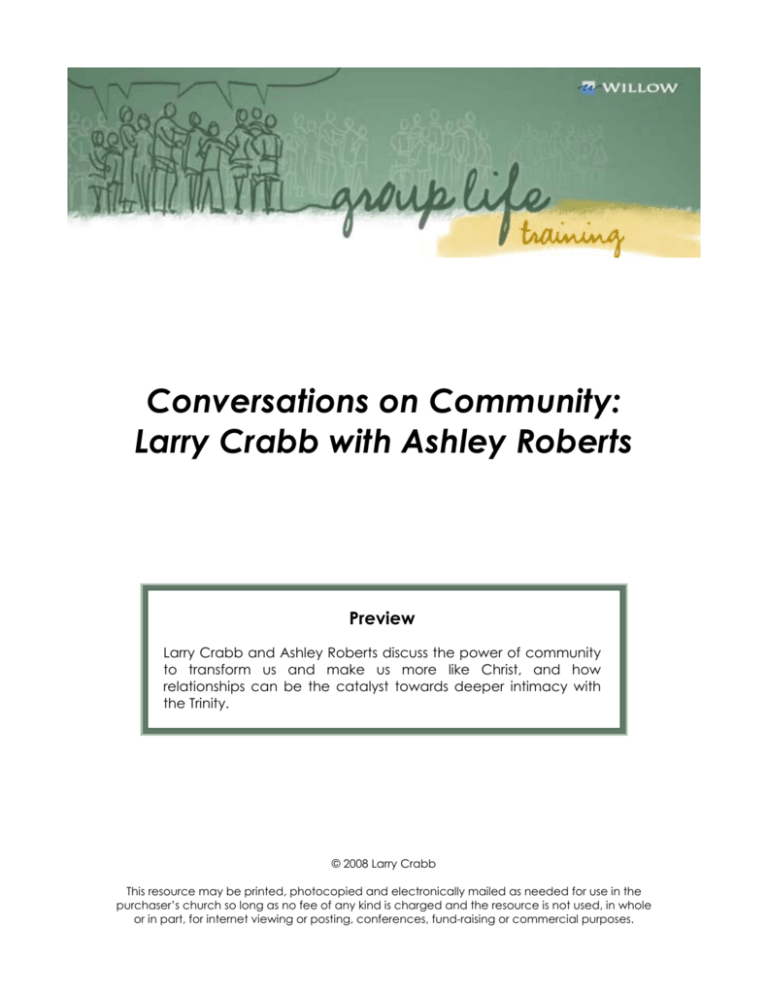
Conversations on Community: Larry Crabb with Ashley Roberts Preview Larry Crabb and Ashley Roberts discuss the power of community to transform us and make us more like Christ, and how relationships can be the catalyst towards deeper intimacy with the Trinity. © 2008 Larry Crabb This resource may be printed, photocopied and electronically mailed as needed for use in the purchaser’s church so long as no fee of any kind is charged and the resource is not used, in whole or in part, for internet viewing or posting, conferences, fund-raising or commercial purposes. Conversations on Community: Larry Crabb with Ashley Roberts | 1 Key Concepts Community as God’s Design • • • • • • We were built for community, and we can’t be all that we are without it. Final reality is not truth, but community. This is a paradigm shift — churches have assumed that if you preach well, people change. What ought to happen in services is that God’s Word is taught, but the sermon should be the framework for community. We need to change what “going to church” means — the essence should be the opportunity to know each other, explore each other’s journey, to discover what the Spirit is doing, and to touch the life of Christ in each other. Church is the framework for “bloody community” — it’s not clean and neat. The Tragedy of an Unobserved Life • • • • • • There is no greater want in the human soul than to know and be known deeply. The church can be a great place to hide. Until I am known fully by another person, I cannot experience the fullness of God. There is no method for making it safe to be observed. Instead, we must ask ourselves if we have become obsessed with grace. When we sense it in each other, we see curiosity — when we share, the listener doesn’t come back with clichés, but instead wants to know more. Becoming More Grace-Filled • • • • • The parable of the Christian life Until I realize my self-obsession I can’t be God-obsessed. The battle of competing desires is the battle between the flesh and the Spirit. We have been taught that something other than God satisfies our soul. Discerning the difference between the desires of flesh and the Spirit requires two things: ○ Understanding relational sin (which means that even in doing something “good” I can sin). ○ Giving feedback to each other in community — speaking truth in love. Knowing God Better • • • • • These conversations reveal how not God-obsessed I am. Knowing God best is when I know the hunger that is unquenchable apart from Him. We all need a community where this can happen. To know God better, I must be open to input and then have the courage to speak back into others. Feedback is not the center of small group community, but there will be times when things need to be said. The Ultimate Goal of Small Group Community • • • • There is a disease in the American church of “good enough Christianity.” We’re content with “good enough.” There is a perversion that shows up in small group community, assuming that God is in the business of blessing us with the things we want most (“If I do A, I’ll get B”). We should be after intimacy with the Trinity, not blessings. Conversations on Community: Larry Crabb with Ashley Roberts | 2 • • • Pain will reveal our competing desires. This is the only way to see our spirit of entitlement. Blessings can be dangerous — they become idols. The Theology of Suffering • • • • C.S. Lewis taught that God gives us many resting places on our journey home, but He never allows us to mistake them for home. Suffering is God’s way of saying, “You’re not home yet.” Suffering awakens our desire for more — for Him. Small groups need to see suffering as an opportunity — we weep with those who weep and try to help, but not with franticness. The Vision for Community • • • • • • When we awaken our desires, we must then wait — this is where community begins. Small groups can relate the way the Trinity relates. Example: Larry’s small group on his birthday Community can always be better. Example: Letters Larry got when he had cancer (“I remember that you actually cared.”) There are five dance steps for making a small group an opportunity for supernatural relating: ○ Think “battle.” ○ Think “passion.” ○ Think “vision.” ○ Think “strong.” ○ Think “movement.” Soul Talk • • • • • Soul talk is the most wonderful thing we can do in community, but we’re scared of it. Men and women are different — their fears are different. Men’s deepest terror is “weightlessness” — being seen as unsubstantial. Women’s deepest terror is “invisibility” — being seen as undesirable. It’s taking care of ourselves — self-talk, not soul-talk. Closing Thoughts • • • • After being a Christian for more than 50 years, Larry feels like his spiritual journey is just beginning. His vision is that it’s possible to know the Father better than anyone else, and in a way that’s unique from the way you know the Son and the Spirit, and to know the Son in a way that’s unique from the Father and the Spirit, and to know the Spirit in a way that’s unique from the Father and the Son. We can enjoy communion with each member of the Trinity individually. This requires a shift toward communing with God, instead of requiring God to be cooperative. The SoulCare Experience: A NewWay Course on Spiritual Friendship, a 13-week DVD small group curriculum, offers a more in-depth look at the language of SoulTalk, the essence of community. For additional information on Dr. Larry Crabb or to order, please go to www.newwayministries.org.
